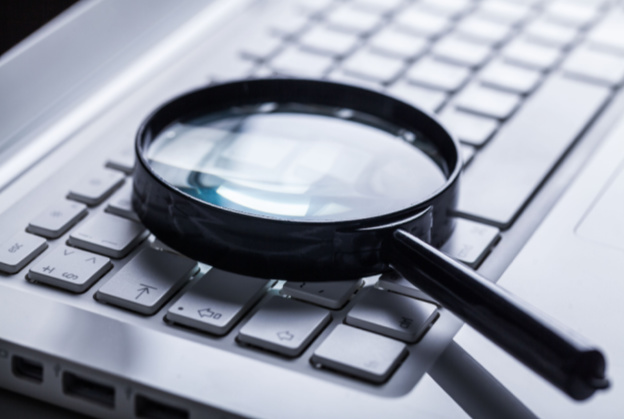What is SOC Compliance?
The term SOC stands for Service Organization Control. SOC compliance refers to whether a service provider meets the set of standards in a SOC audit, created by the American Institute of CPAs (AICPA). SOC audits are not a mandatory requirement for organizations to perform but are instead typically performed if requested by customers. For example, if a company specializes in offering outsourced technology services, odds are they will be asked by customers for a SOC audit at some point. This audit is designed to prove to a service provider’s customers the validity of their service promises and that the proper practices are in place. The SOC audit is performed by a third-party CPA to help assess whether these specific controls have been put into place, which will deem whether or not the business SOC compliant. This article aims to effectively describe one type of SOC audit, the cybersecurity compliance audit which is used to evaluate the effectiveness of an organization’s cybersecurity risk management program.
SOC for Cybersecurity
Due to today’s increased awareness of cyber threats, organizations of all types are under added pressure to demonstrate that they are mitigating threats and have effective processes and controls in place. To address this the AICPA developed a SOC audit for analyzing the effectiveness of an organization’s cybersecurity practices and risk management. In this type of audit, a third-party CPA will report on the organization’s cybersecurity risk management program as a whole and report back their findings and decision on whether the organization is compliant. Ultimately this type of SOC audit helps reduce uncertainty and build resilient organizations by evaluating the effectiveness of existing cybersecurity processes.
Why Conduct a SOC Cybersecurity Audit?
Though most commonly SOC audits are conducted upon a customer’s request, an organization can still seek to obtain this type of certification to add to their credibility. This can be especially useful for service providers who handle their customer’s financial information or data. The AICPA’s SOC for Cybersecurity can provide an extra layer of assurance of the practices and controls within an organization’s cybersecurity risk management, which will build trust for customers and investors. In this type of audit CPA firms will deploy teams of CPAs, IT professionals, and cybersecurity specialists to conduct a thorough and comprehensive audit of an organization’s cybersecurity risk management program, with the goal of ultimately determining whether the business is SOC compliant or not.
SOC for Cybersecurity Reporting Framework
This reporting framework helps organizations communicate the effectiveness of their cybersecurity risk management programs via the three following components:
- Management’s Description of an Organization’s Cybersecurity Risk Management Program
In this criterion, CPAs will report on the organization’s description of their cybersecurity risk management program. This provides complete transparency regarding the entity’s cybersecurity practices and risk management program. This portion of the audit also allows CPAs to understand the organization’s cybersecurity risks and how they should be mitigating those risks within their cybersecurity risk management program. Specifically, the description includes considerations of the nature of the business, other factors affecting the risk of cyber threats, risk governance, assessment process, and the monitoring of the cybersecurity program.
2. The 5 Trust Services Criteria:
- Security- data needs to be protected against unauthorized access and anything that could compromise their confidentiality.
- Confidentiality- confidential information needs to have the appropriate protection.
- Processing Integrity- system processing must be timely and accurate.
- Privacy- any personal information collected must be used protected and disposed of properly.
- Availability- systems need to be available for operation.
3. AICPA Guide Reporting on an Organization’s Cybersecurity Risk Management Program
A guide that contains information that can assist company management in understanding the SOC for Cybersecurity criteria. Company management should study these guidelines and criteria for which they will be evaluated to better report on their business’s cybersecurity risk management practices.
The SOC for Cybersecurity examination provides a comprehensive assessment of an organization’s cybersecurity risk management program, which in turn helps organizations to reduce uncertainty about their cybersecurity posture and establish better credibility with their customers and investors.
AgileBlue SOC| XDR
AgileBlue’s SOC|XDR platform is proven to detect indicators of attack across your entire digital infrastructure and cloud before a breach occurs. Our relationship with our clients is how we define our success. We take a custom approach with every client we work with, analyzing and detecting exactly what you need. Is today the day you improve your security strategy?
To request a demo, please provide some information about yourself using the form below. A member of our team will reach out promptly.
Sources
- https://us.aicpa.org/content/dam/aicpa/interestareas/frc/assuranceadvisoryservices/downloadabledocuments/soc-for-cybersecurity-brochure.pdf
- https://us.aicpa.org/interestareas/frc/assuranceadvisoryservices/aicpacybersecurityinitiative
- https://www.strongdm.com/blog/soc-1-vs-soc-2




